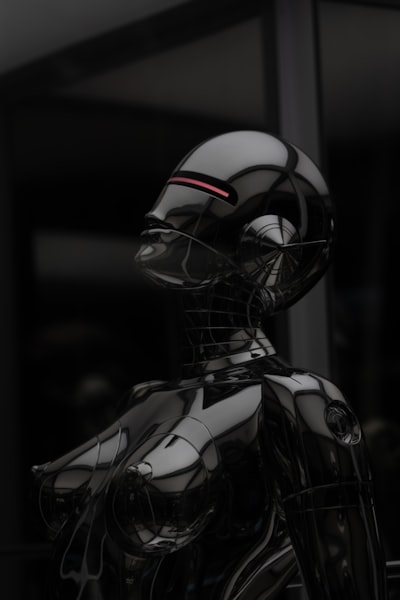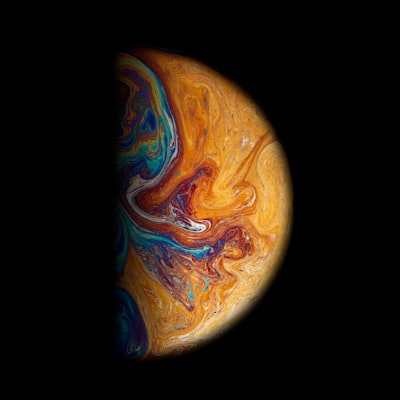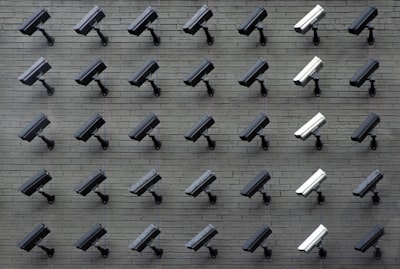One night you're preparing dinner and slice a small piece of skin from the tip of your index finger. Your finger bleeds but the bandages under your bathroom sink are enough seal your wound. After a week your finger heals, but there remains a small indent at the tip of your finger where a part of you will be - for the rest of your life - missing. Are you still the same person? What if you were to lose an entire finger, or both legs? How about a supernatural incident where you gain sixteen limbs? Or a series of events that make you afraid to be alone in a room with another man? Or, a seizure, which upon returning from, allows you to speak fluently in every known language? At which moment, in any of the above, are you no longer "you"?
Categorizing Subjects, The Dewey Decimal System, and The Shortcomings of Both
There is a more visceral questioning of personal identity in the public discourse concerning sexuality and gender; as we collectively ask questions like, can a woman have a penis? These questions are important, if for no other reason than to illuminate that contemporary language deficiently articulates modern experiences. Words rarely precede an emotion or encounter, they trail as relics of our existence.
Even when one finds the right word it's only the closest word. To quote Nietzsche.
"Words are but symbols for the relations of things to one another and to us; nowhere do they touch upon absolute truth."
If language can never stand-in as the truth, why are we so deeply offended when someone misidentifies us by the wrong name or gender? Are the sciences of semantics and taxonomy structured by emotion rather than reason? If so, then language is not only antiquated, but illogical. Subject to delusion, misinterpretation, and biases. Yet, words are the medium through which life propels. Imagine being told any of the following: you're fired, we're moving, I love you, we're pregnant, it's over. Each of those sentences momentarily tilts a person's life into chaos. Words then are the perfect symbol for any encounter. If not through their meaning then through their substance - which like the world so often appears absent of order.
Perhaps this is why librarians organize the 39 million books in the Library of Congress with numbers. Those string of nine digits that represent an infinite number of distinct possibilities. Numbers are, unlike words, unemotional, objective, and logical: the basis of the dewey decimal system. First published in 1876, this system attempted to classify existing and newly published book by its primary subject - each which was assigned to a number. 210 - Natural Theology. 355 - Military Science. The sum of human knowledge and literature summarized by numbers.
Such an ambitious project is not deployed without problems. For one, it's rarely updated. The last edition was released in 2011, when the world was introduced to Siri. Such a gap between editions is negligent in an era of rapid exchange of information and change. This negligence causes actual harm, as "homosexual" texts are still classified under 616.8583 - sexual practices viewed as medical disorders. Critics have been quick to call the Dewey Decimal System "homophobic." A claim which is blinded by its anthropomorphism. After all, in 2011, laboratories were still practicing shock-conversion-therapy toward homosexuals in the name of science. The classification is better interpreted as a reflection of the tenured academic stance towards homosexuality.
Speculative Fiction is Not a Genre
Mis-categorizing minority sexual practices as a mental illness is both scientifically incorrect and socially damning. The last part, 'socially damning' is the real danger to any mis-categorization. It means, to the mis-categorized, that you or it remain misunderstood. In this sense, ignorance is not bliss but bludgeoning. It means the nuances of species, the idiosyncrasies of individuals, the parts most precious and obscure are lumped into sweeping generalities. Crass accusations eclipse inquisitiveness, as ignorance encourages blaming someone's behavior on being a "straight white male" or "troubled black teen." Claims which see everything but the person they describe.
It's easy to identify the pains of mis-categorization when humans are the assailed. That infliction extends to inanimate objects. But, instead of diminishing or ruining the lives of a people group, it reduces humanity's ability to interact with the broader world. What impact, for example, would it have if overnight wet concrete were bottled, and consumed, as salad dressing? Mis-categorizing objects or ideas is a threat to not only progress (see: homosexuality as mental illness) but our genealogical sustainability. So, it's not too far of a gap to believe that morals, literacy, technological progress, historical interpretations - intelligence as a species is hindered by the continued mis-categorization of literature.
Whereas nonfiction in the Dewey Decimal System is categorized by subject, fiction is broadly classified by the language or origin and year of publication. This means the sum of speculative fiction lives under 813 - fiction.
Let's compare the taxonomical difference between a non-fiction book on Finsler Geometry, and the 1965 Climate Fiction, Dune.
| ID | Non-Fiction | Fiction | ID |
|---|---|---|---|
| 500 | Natural sciences and mathematics | Literature | 800 |
| 510 | Mathematics | U.S. Literature | 810 |
| 516 | Geometry | U.S. Fiction | 813 |
| 516.3 | Analytic geometries | 20th Century | 813.5 |
| 516.37 | Metric differential geometries | 1945-1999 | 813.54 |
The precision of a subject-first manner of classification practically mimics another principal of social sciences; six degrees of separation, which has demonstrated that any person is only six people away from another. Any five tiers on the non-fiction side of the dewey decimal chart above leads a reader to nearly the exact book to satiate their curiosity. The fiction side, however, leaves readers to filter through every novel published in the United States from 1945-1999.
Let's model this approach for a make-believe book on relationship practices for a reader like myself. Below, we see more viscerally how unhelpful a location-era approach is at classifying literature.
| Heterosexuality as Non-Fiction | Heterosexuality as Fiction |
|---|---|
| Human Sexuality | Human Sexuality |
| Heterosexuality | Male Sexuality |
| Cis-Gendered Heterosexuality | U.S. Male Sexuality |
| Cis-Gendered Male Heterosexuality | U.S. Male Sexuality 21st Century |
| Cis-Gendered Heterosexual Relationship Practices | U.S. Male Sexuality 2000-2025 |
And so, the richest and most imaginative kinds of literature are deduced to a dual tiered set of characteristics: country and decade. This has certainly attributed to the confusion over which books exactly belong to the realm of speculative fiction. It is true that local bookstores categorize kinds of speculative fiction separately under "science fiction and fantasy." More so, SF databases, encyclopedias, and dictionaries have provided clarity to the themes and elements that encapsulate speculative fiction. But as long as the classification of speculative fiction remains the responsibility of municipal bookkeepers and hobbyists - without the backing of a central authority like the dewey decimal system - these genres will remain prized solely by that niche audience.
Moreover, these efforts try to formalize speculative (or more often science fiction) as a standalone genre. But these terms are too generic. Why describe a book as "speculative" in lieu of one more precise, like "supernatural horror"? The genres belonging to speculative and science fiction are broad. There are the household names: alternative history, horror, fantasy - to name a few. But there are others, many others. To name a few: cyber or steampunk, feminist dystopian, urban fantasy, afrofuturism. In sum, there is something close to 50+ genres of speculative fiction. But these are not numbered universally. Even that number is an estimate.
So, instead of common conversations happening around the merits of slip-stream versus steampunk in a broader literary community. Many keep asking the same questions of identity over and over, what is speculative fiction? This, unfortunately, is akin to a child trapped in puberty asking over and over, who am I? And without an answer to the most basic question of identity, there is no evolution. Let's agree on one thing, though. Such a sweeping category of literature is not, by any taxonomical standards, a "genre" but a class.
A Short History of Science Fiction And the Literary Rebellion that Bore 'Speculative Fiction'
The popularization of the term speculative fiction is attributed to the dean of science fiction, Robert Heinlein after his story "The Green Hills of Earth" was published in the Saturday Evening Post in February of 1947. Before then, science fiction was sequestered to a "pulp ghetto" - a dysphemism for science fiction, where cheap stories were printed on even cheaper paper. Heinlein's "The Green Hills of Earth" legitimized science fiction to a commercial audience, making it, for the first time in 20th Century American literature, a serious choice of genre for serious, choicy readers.
Heinlein's use of the term speculative fiction, however, was synonymous with science fiction. He believed that fantasy - a genre colloquially suffixed to science-fiction - was separate. Which attributed to confusion around which stories belonged to either genre, and what separated the genres from another. Infighting abounded in the sixties, when a group of science fiction authors ushered in a movement coined New Wave science fiction. An already confusing set of literature was fractured even further. There were the traditional sci-fi authors, and the new. But what really were the differences?
In short, the New Wave authors distinguished themselves from the existing canon of science fiction through experimental styling of storytelling and sentence structure. They vowed to a literary renaissance within sci-fi, and their works favored artistic sensibility over detailing how hypothetical scenarios or scientific theories could become reality. A New Wave book about regular travel to Mars, for example, would not spend much time convincing a reader how a vehicle could sustain oxygenation levels in the cabin for days. Rather, it would explain how such an experience affected psychology, language, cultural norms, physical bodies - how essential qualities of human life - may be altered by such happenings. And it would be told beautifully, boldly, in a voice most original.
But, is literary quality a justification for a distinct genre? Is not the classification of a piece as "literary" akin to categorizing a book as "classic" in that neither as a title is self proclaimed, but earned? The lack of differences between the New Wave and traditional writers of science fiction ultimately led to the New Wave authors admitting that their movement was a "manufactured controversy."
Nevertheless, a precedent was set and the desire to differentiate literary science fiction from the more common, pulp-styled stories was irreversible. Authors wanting to experiment in the genre were pressured to vocalize that they weren't writing that kind of sci-fi. Famously, Margaret Atwood has self-identified as an author of speculative fiction, and has distanced herself from the genre of science-fiction, denigrating it being nothing more than "talking squids in outer space."
Who can blame her? In 2003, the NYT, in its opening sentence of the review for her then newest novel, Oryx & Crake stated that, "science fiction will never be Literature with a capital 'L'."And, it wasn't until Cormac McCarthy's The Road won a Pulitzer Prize in 2007 that any book in the genre had been acknowledged by the esteemed literary prize as art. Even then, the classification of McCarthy's work as science fiction or dystopian was an unspoken quality to the work. To those who care about the legacy or reputation of being literary or artistic, the playbook has been relatively clear: steer clear of the term science fiction and its affiliates.
Yet, this is the exact cry of authors who've coined and reused the term speculative fiction. It is, for them, an identifier that the work possesses both imaginative qualities and artistic sensibilities. Which, to those in or in proximity to the established literary community, has been the center around much of the debate between speculative and science fiction. And still, after 50 years of the New Wave forfeiture and 15 after the Pulitzer panel acknowledged a work in the field as art, the community has diminished it to two things: risky or second-class. Leaving the common reader to ask, what exactly is speculative fiction?
A Most Brief Definition of Speculative Fiction
Speculative fiction, as Wikipedia, and a number of fandom pages, collectively define it, is an umbrella terminology for any novel which contains elements that are believed unreal or nonexistent. Skeptics of the craft will claim, as the NYT has published, that, "it inevitably proceeds from premise rather than character." This summarizes the chief complaint to how or why works of science fiction are not as artistic as other works of fiction. In short, because characters, and thus relatability, should be the chief quality to fiction. Certainly, It is the duty of the author to introduce these elements as scientifically, logically, or historically plausible. Believability, after all, is what gives each novel its power. Consider the luddites who tossed copies of Harry Potter into a fire. To my knowledge all who burned those books on accusations of moral corruption, not because there could be such thing as school for wizards undiscoverable to muggles. Its success stemmed from the belief that what its characters were encountering were real.
So, alas, we're left with a rather simple, and broad, definition of speculative fiction. One only has to ask a single question.
- Are the experiences of the primary character(s) unreal or seemingly impossible?
If yes, the work, is a piece of speculative fiction.
As argued earlier, however, "speculative" is an unsatisfactory title for a genre. Rather, answering yes only qualifies the piece for belonging to one of the many genres of speculative fiction. Absent of listing and defining each of these, I'll defer to the diagram below by Ward Shelley, which visualizes the rich landscape and history of science fiction. My only wish is that the piece was titled "The History of Speculative Fiction" - since many of the cited works do not expound on scientific possibilities. But this image alone demonstrates how rich, imaginative, and impactful the class of speculative fiction has been, and how any bookshelf would be incomplete without its tales.

Speculative Literature is for Imagineers
It is the imaginative nature of all speculative fiction which proves it an invaluable category of literature. To cite again Bessel van der Kolk from his work The Body Keeps the Score.
Imagination is absolutely critical to the quality of our lives. Our imagination enables us to leave our routine everyday existence by fantasizing about travel, food, sex, falling in love, or having the last word - all things that make life interesting. Imagination gives us the opportunity to envision new possibilities - it is an essential launchpad for making our hopes come true. It fires our creativity, relieves our boredom, alleviates our pain, enhances our pleasure, and enriches our most intimate relationships...Without imagination there is no hope, no chance to envision a better future, no place to go, no goal to reach.
From this premise, speculative fiction is not just a cute landscape for imaginations to flourish beyond childhood. It is the class of literature that enhances the quality of individual lives, heals trauma, pushes the boundaries of scientific possibilities, discovers new language for the modern era. It is perhaps the only genre powerful enough to unite people at-scale through story. And if that statement seems too bold, consider the cultural significance of any of the following stories: The Lord of The Rings or Alice in Wonderland. Hell, even Twilight. Through speculation we explore the depths of our imagination and the possibilities of life.
The importance of speculative fiction then is not in the literal concepts or worlds created, but in inviting the reader to imagine. Each page marks a literal expansion of reality. Not a mere recollection - or copying - like works of memoir or history (which are also significant). Speculative fiction, by placing us in worlds that aren't yet reality, provides a vocabulary for the lives we may one day inhabit. They give us the words for modern experiences and frameworks to understand current happenings which so often leave us in disbelief. Words that could help us understand answers to questions like, at which moment, in any of the above, are you no longer "you"?





